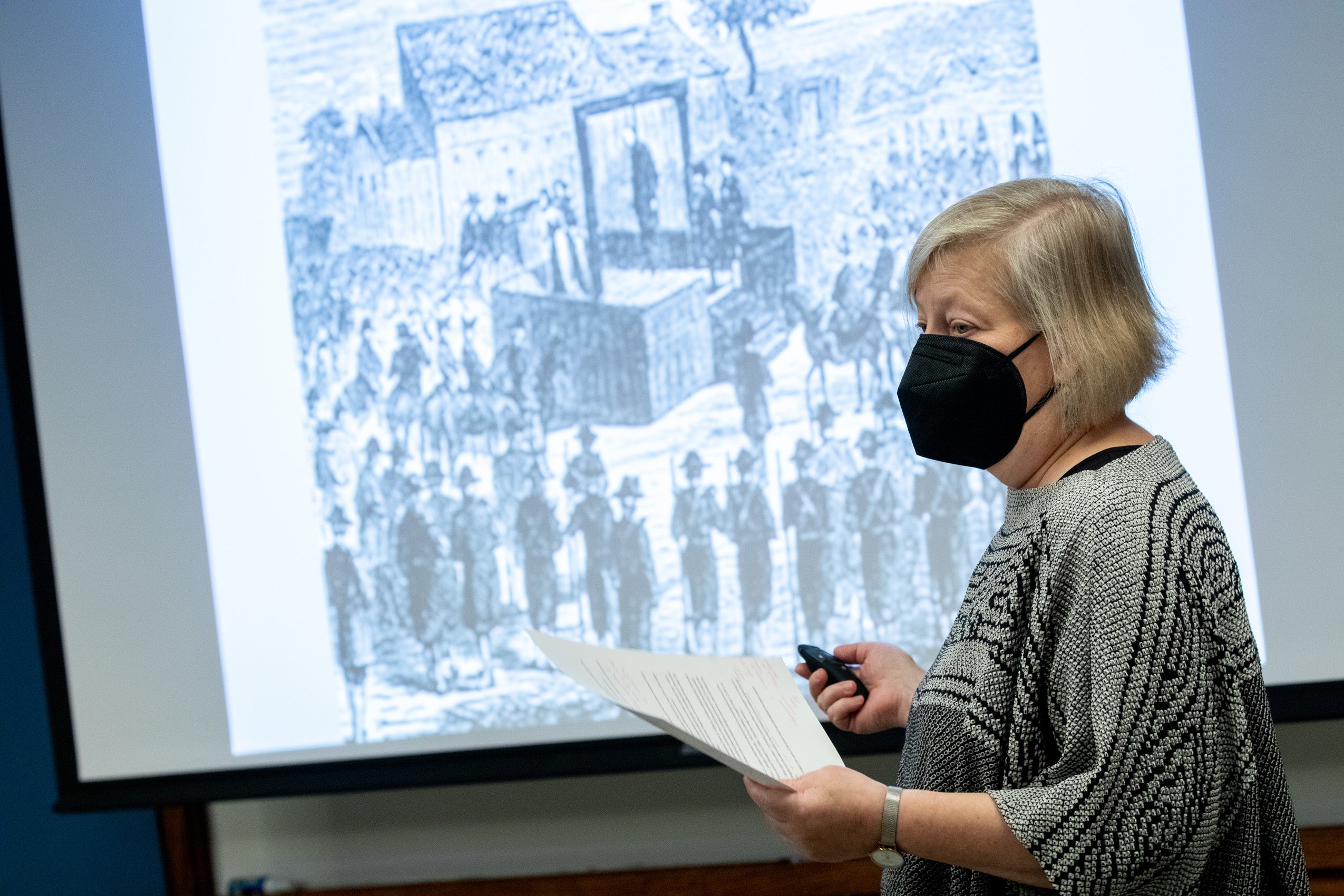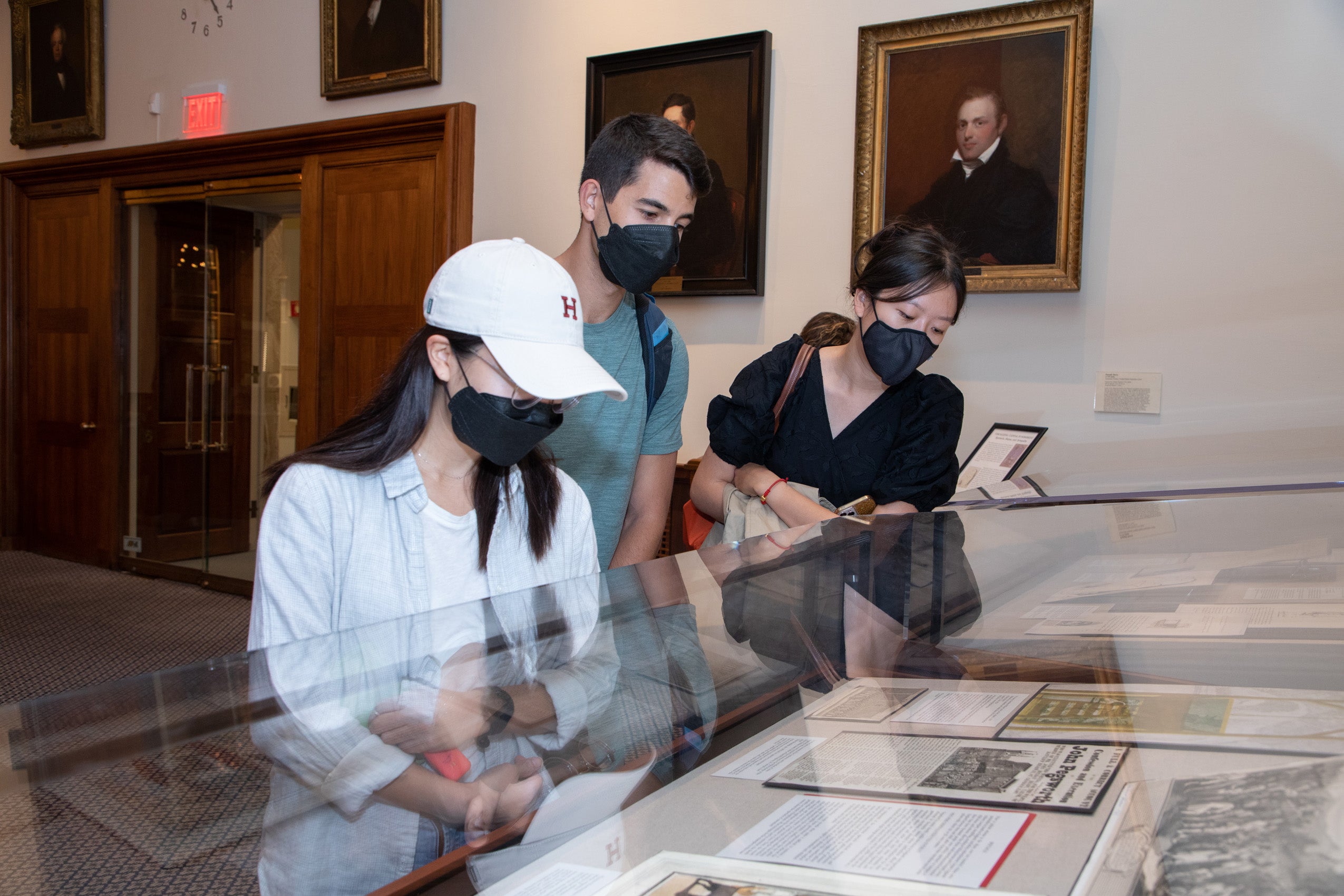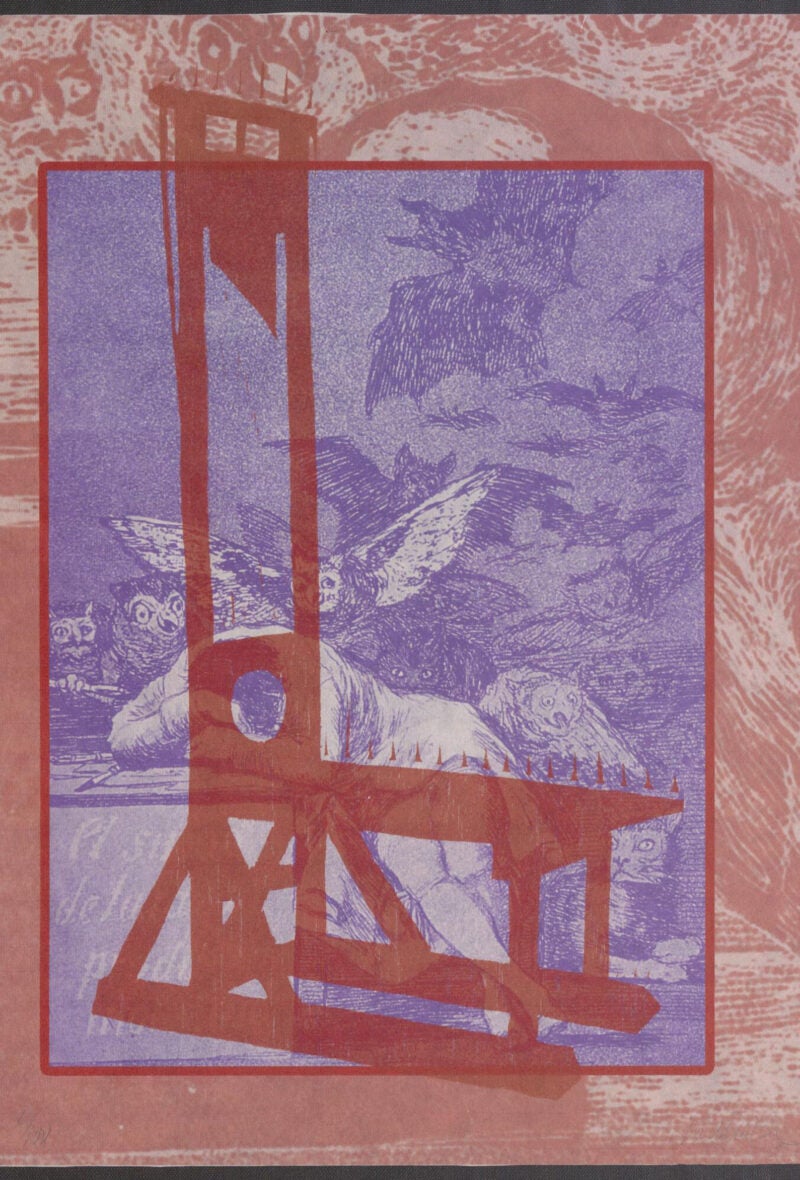An expert on capital punishment, Harvard Law School Professor Carol Steiker ’86 kicked off a yearlong series of talks on the death penalty this fall at Harvard Law School with a talk on the state of capital punishment.
Sponsored by the Harvard Law School Library, the events are being held in conjunction with the library’s newest exhibit “Visualizing Capital Punishment: Spectacle, Shame, and Sympathy.” The exhibit, drawing from material in the library’s Historical & Special Collections, explores the power of visual imagery to change minds about the death penalty.
Over the centuries there have been many inventive and sometimes torturous modes of capital punishment, including burning at the stake, the guillotine, and hanging, said Steiker in her Oct. 12 remarks, which provided historical context for the death penalty as well as an overview of the current state of the death penalty in the United States.
The death penalty has been with us since the founding of our country, said Steiker. “It was authorized and used by every one of the original 13 colonies, and when they became states, and then by the new federal government,” she said. But the death penalty has had “an up and down ride since then.” Today 27 of the 50 states authorize the death penalty and only four of the original 13 colonies — Pennsylvania, North Carolina, South Carolina and Georgia — are among them.

It’s only used “with any great frequency” in only a handful of the states that do authorize the death penalty, she said.
The current trajectory of the death penalty in the United States maps onto the trajectory of the world. “In the last half century the world has seen a tremendous decline in capital punishment, both in its authorization and its use,” she said.
“What’s really great about this exhibit,” said Steiker, is it “gives us some insight into what has brought us to where we are today, and what has led to the destabilization and the diminution of the practice of capital punishment here and in other similar places in recent years.”
A second event in the series, “Death Penalty Defense Work,” held in early November, featured Steiker in conversation with recent HLS graduates working in the area of death penalty defense.
Death Penalty Defense Work
The Library will sponsor three more related events in the spring:
In March 2023, Martha Minow, the 300th Anniversary University Professor, will host an in-person conversation, “Scholars and Artists Discuss the Death Penalty.”
Also in March, Carol Steiker will host a fireside chat with several scholars on the state of capital punishment in the U.S. after Furman v. Georgia.
In April, the library will host an ideas salon, featuring current and former Capital Punishment Clinic students discussing their work
The “Visualizing Capital Punishment” exhibit features a range of materials from the library’s collection, including English execution broadsides; original political cartoons from a collection recently donated by Harvey Silverglate (HLS 1967); and a modern art portfolio, Contra la Pena de Muerte, by Puerto Rican artist Antonio Martorell which was recently acquired by the library.
The exhibit was curated by KB Beck from the Library’s Historical & Special Collections. The exhibit is on view in the Caspersen Room, Langdell Hall, weekdays from 9 to 5 through June 2023. Access to Harvard Law School buildings is currently limited to Harvard ID holders. The exhibit is also viewable online.

Save the date
Watch HLS events for details on upcoming events on capital punishment
- March 2023: Martha Minow, the 300th Anniversary University Professor, will host an in-person conversation, “Scholars and Artists Discuss the Death Penalty.”
- March 2023: Carol Steiker will host a fireside chat with several scholars on the state of capital punishment in the U.S. after Furman v. Georgia.
- April 2023: In April, the library will host an ideas salon, featuring current and former Capital Punishment Clinic students discussing their work.
